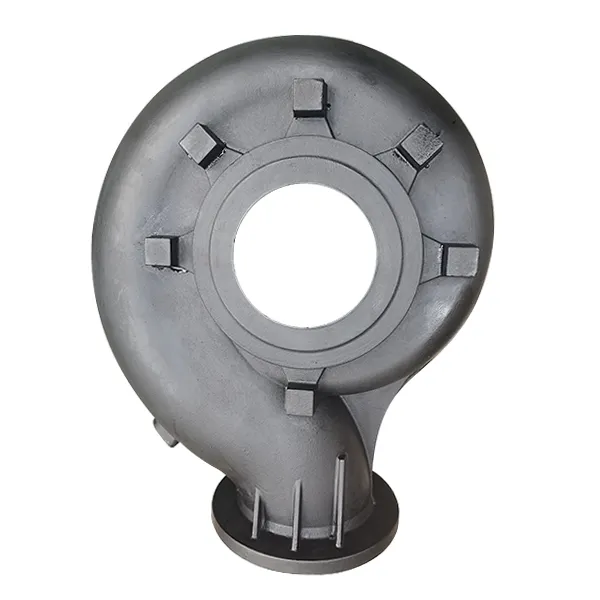Mobile:+86-311-808-126-83
Email:info@ydcastings.com
Jan . 10, 2025 12:05
Back to list
Pump Body
Centrifugal pump volute casing plays a pivotal role in optimizing the efficiency and reliability of centrifugal pumps across various industrial applications. With years of experience working with a myriad of pump systems, it is clear that the design and functionality of the volute casing can dramatically influence the performance metrics such as flow rate, efficiency, and longevity of the pump itself.
Industry experts often encounter the challenge of balancing production costs with performance gains. It’s important to consider the materials used; for instance, while cast iron may suffice for standard applications, stainless steel could be necessary for environments with stringent hygiene standards or exposure to corrosive substances. Equally important is the authoritative insight provided by formal standards and guidelines issued by recognized entities such as the Hydraulic Institute. These set the benchmarks for manufacturing volute casings and ensure they adhere to industry standards, assuring end-users of their reliability and efficiency. Establishing trust with clients or stakeholders regarding the effectiveness of a chosen volute casing design relies heavily on empirical performance data and case studies demonstrating real-world application successes. Companies with a history of proven excellence and patented technologies in centrifugal pump manufacturing further enhance their credibility by showcasing testimonials and quantifiable benefits realized by their clients. In conclusion, centrifugal pump volute casings are more than just an assembly component; they are a critical element in achieving overall system efficiency and reliability. Mastery of the variables influencing volute casing performance not only demands a foundation of theoretical knowledge but also practical experience and adherence to industry standards, all of which collectively underpin a company’s reputation for providing trusted, authoritative solutions in centrifugal pump technology.


Industry experts often encounter the challenge of balancing production costs with performance gains. It’s important to consider the materials used; for instance, while cast iron may suffice for standard applications, stainless steel could be necessary for environments with stringent hygiene standards or exposure to corrosive substances. Equally important is the authoritative insight provided by formal standards and guidelines issued by recognized entities such as the Hydraulic Institute. These set the benchmarks for manufacturing volute casings and ensure they adhere to industry standards, assuring end-users of their reliability and efficiency. Establishing trust with clients or stakeholders regarding the effectiveness of a chosen volute casing design relies heavily on empirical performance data and case studies demonstrating real-world application successes. Companies with a history of proven excellence and patented technologies in centrifugal pump manufacturing further enhance their credibility by showcasing testimonials and quantifiable benefits realized by their clients. In conclusion, centrifugal pump volute casings are more than just an assembly component; they are a critical element in achieving overall system efficiency and reliability. Mastery of the variables influencing volute casing performance not only demands a foundation of theoretical knowledge but also practical experience and adherence to industry standards, all of which collectively underpin a company’s reputation for providing trusted, authoritative solutions in centrifugal pump technology.
Next:
Latest news
-
Impeller Technology That Powers Precision in Pump SystemsNewsMay.22,2025
-
Valve Durability Begins with Quality Cast Iron ComponentsNewsMay.22,2025
-
Performance Cooling with Advanced Automobile Water Pump SolutionsNewsMay.22,2025
-
How Motor Housing and Oil Pans Shape Engine PerformanceNewsMay.22,2025
-
How Metal Castings Drive Modern Manufacturing EfficiencyNewsMay.22,2025
-
Exploring the Engineering Behind Valve Body CastingsNewsMay.22,2025
Related PRODUCTS










